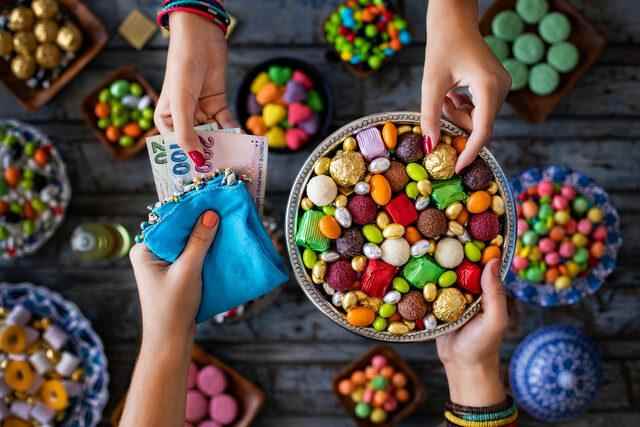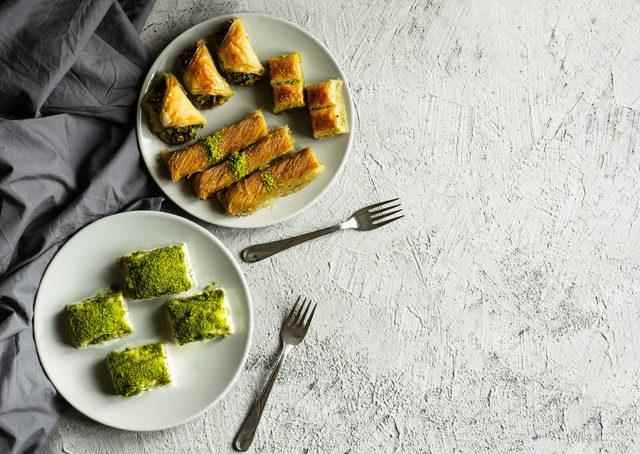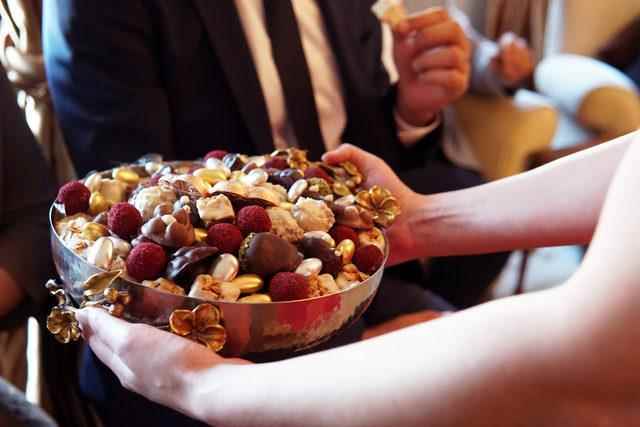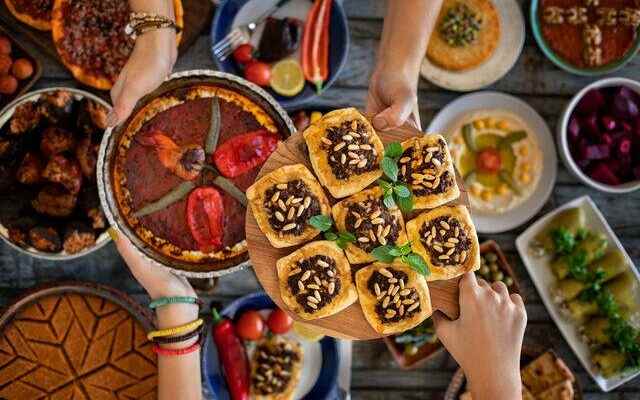The changing eating habits in Ramadan will end with the start of the holiday. For this, it is necessary to gradually return to the old eating habits before Ramadan. The thought that the feeling of hunger that continues during the day for a month will disappear due to Ramadan usually causes the desire to overeat.
The day should be started early in the morning of the feast with a light feast breakfast. Heavy fried foods should not be eaten for breakfast, and foods with high salt content should be avoided. Pastries such as pastries, rolls and börek and heat-treated foods such as sausage, salami and sausage should not be eaten on the first day. Protein sources such as cheese, eggs and milk should be preferred, and vegetables that do not tire the stomach such as cucumbers and tomatoes should be preferred as well as olives.
ATTENTION TO THE TREATS ON THE RAMADAN DAY
During the Ramadan Feast, it is beneficial for those who have weight problems to consume 1 portion a day of sugar and sherbet sweets, which are among the indispensables of the holiday. However, if dessert is to be consumed, low sugar milk desserts, fruit desserts and ice cream should be preferred. It is known that a significant portion of people generally gain some of the weight they lost during Ramadan during the 3-day Eid and the following days. It is necessary not to overdo the treats during the holiday visits.

Heavy sweets with syrup should be avoided. If dessert is to be served during the feast, fruit desserts or milk desserts should be preferred. Nuts such as hazelnuts, walnuts and pistachios, and compote made from dried fruits and ayran can be served to the guests.
DRINK 8-10 GLASSES OF WATER DAY
Since there is not enough fluid intake in the body during the month of Ramadan, water consumption is often forgotten during the feast. Water, which facilitates digestion, has an important place in life, as it removes harmful substances from the body. For this, care should be taken to drink 8-10 glasses of water a day during the feast.

Caffeinated, carbonated and high sugar drinks should be avoided, especially during holiday visits. Do not drink more than 1-2 cups of coffee a day. It will be healthier for the hosts to offer water and ayran instead of these drinks.
KEEP PORTIONS SMALL
During the holiday, care should be taken to eat small amounts and often, and healthy foods that do not tire the digestive system should be consumed. For lunch, a table consisting of vegetable dishes with olive oil, lightly grilled meat and salad should be preferred. On the other hand, it will be healthier to prefer fruit and yogurt as a snack. Light foods should be consumed at dinner, and late nights should not be preferred for meal time.

MOVE A LOT
Walking and sports, which cannot be done due to the month of Ramadan, should be returned. Brisk walks and sports increase the metabolic rate and keep the body fit. Especially during holiday visits, the extra energy taken through food will be spent in this way. First of all, it should be started with short and then medium distance walks, and heavy activities that will tire the body should be avoided for the beginning.
